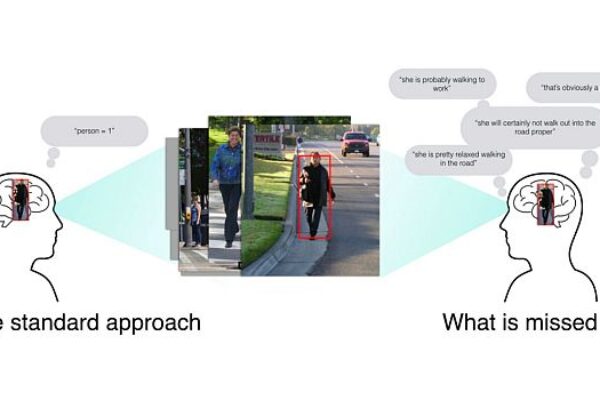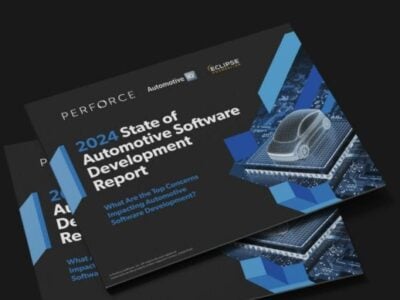
Self-driving tech startup emerges with ‘human intuition’ AI
According to the company, it has solved “the hardest of the hard problems for autonomous vehicles” – the problem of understanding human behavior. To address it, the company has developed a software-based system that integrates pedestrian visibility, motion detection, and machine learning to predict pedestrian movement – in other words, “human intuition for self-driving cars.”
“We’ve designed a model that can use the whole spectrum of subtle, unconscious insights that we, as humans, use to make incredibly sophisticated judgments about what’s going on in someone else’s head,” says Sam Anthony, CTO and co-founder of Perceptive Automata. “You could say that, in a sense, our models develop their own human-like ‘intuition.'”
Currently, says the company, instead of smoothly responding to a situation the way human drivers would, self-driving cars “act alternately ‘paranoid’ – i.e., timid, skittish, and easily startled – and oblivious.” As a result, their erratic behavior is both frustrating for passengers and other drivers, as well as a reason why self-driving cars are often rear-ended.
To address this, the company takes image sensor data from vehicles that show interactions with people – pedestrians, bicyclists, and other motorists – and then shows the clips to groups of people that answer questions about the depicted pedestrian’s (or motorist’s, or cyclist’s) level of intention and awareness based on what they are seeing. For example, one study respondent may think the pedestrian is waving at a car to go ahead, while another respondent might think the pedestrian is asking the car to stop and let them cross.
The process is repeated hundreds of thousands of times, with all sorts of interactions. Then, says the company, it uses that data to train models that interpret the world the way people do.
“Once trained, our deep learning models allow self-driving cars to understand and predict human behavior and, subsequently, react with human-like behaviors,” says Anthony. “This has huge implications for safety, rider experience, and practical utility in the self-driving car industry.”
Investors in Perceptive Automata include First Round Capital and Slow Ventures. According to the company, its human intuition AI module is already up and running in the vehicles of self-driving car companies around the world.
Related articles:
Nvidia: Fully autonomous cars on the road in four years
Next-gen artificial perception better mimics human vision
Microsoft AI simulator expands to autonomous car research
AI technique helps robots learn by observing humans
 If you enjoyed this article, you will like the following ones: don't miss them by subscribing to :
eeNews on Google News
If you enjoyed this article, you will like the following ones: don't miss them by subscribing to :
eeNews on Google News




